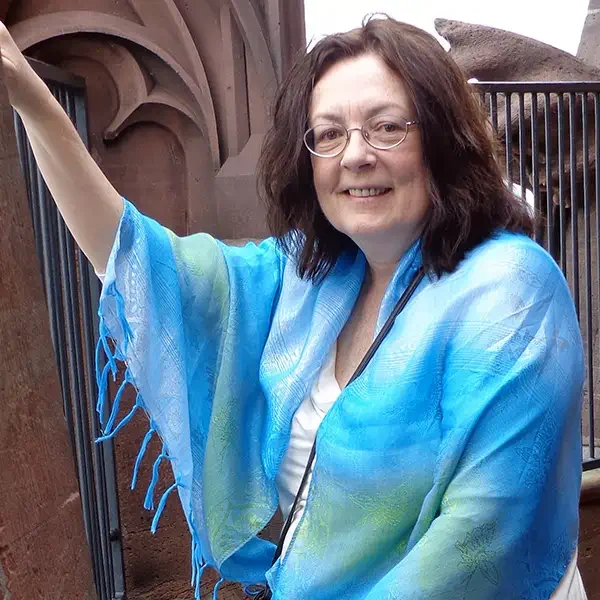Composer Bio
“The great satisfaction is crafting the music” said Nancy Galbraith in accents that brook no contradiction. Nancy sees composition as a complex process in which the ego of the creator takes second place to the making of a beautifully crafted, perfectly constructed work of art. The nineteenth century cult of personality is not for this composer. Rather like Bach, or even Stravinsky, she makes objects in sound which are a beautiful, expressive affirmation of life.
Nancy Galbraith works mostly to commission. Her music then starts with many of its parameters already defined. She is very comfortable with that. She sits at the piano and improvises until the right music, chords and rhythms, and melodic ideas that will characterize the new piece are formed. Then she will move to the computer and start notating the ideas, not necessarily in the order they will appear in the finished work. Composing is rather like sculpting in sound. Parts of the piece are cut away, others developed, some expanded into the many dimensions of counterpoint while other parts dissolve into an impressionistic haze. “When I am stuck it is because I don’t know where I am in the piece.” The relationship of the moment to the whole is everything.
Nancy studies other composers in her quest for renewal. She sees her passage through the composing life as something organic, sloughing off the old skin while developing a new one. In essence she does not change, yet she is constantly renewing herself. A composer who recurs regularly in her conversation is Stravinsky. The Rite of Spring (“a kind of bible”) and the Symphony of Psalms are essential reference points. An interesting mix of other composers crosses the Galbraith horizon. Britten (the choral writing in the War Requiem), Corigliano (“I like his ear, the intricate sounds”), Penderecki (The Magnificat-Nancy’s next big choral work is also a Magnificat), and John Adams (“A bit too close to me”). Nancy teaches composition and theory at Carnegie Mellon University in Pittsburgh. Her students are subjected to the rigors of Bachian counterpoint which in turn keeps Nancy’s contrapuntal skill honed.
Nancy loves to travel. However she is quick to distance herself from the travelogue composer. Painting (art galleries are always found time for when on the road), literature, and travel are all part of the constant urge for renewal. They are absorbed and made, like her musical ideas, part of the whole. Good discipline is the key to Nancy’s productivity. Tuesday, Thursday, and Friday find her teaching long days. For the rest of the week she guards the long blocks of time she needs to focus on composing. She has no illusions, “this is hard work.” The long University summer break is no vacation. This is the biggest block of sustained work time of them all.
People like Nancy’s music. Commissions keep coming. She is writing a large scale single movement work for the Pittsburgh Symphony. Then there is that Magnificat and many smaller choral pieces for Christ Lutheran Church in Pittsburgh where she directs the music, something to do on Sunday.

